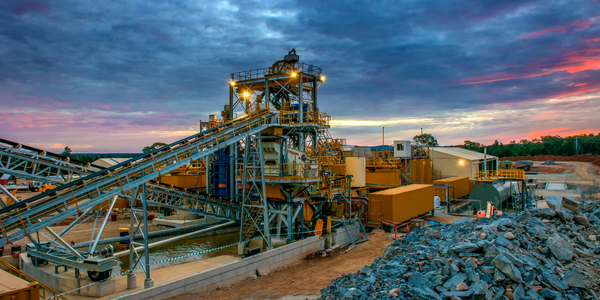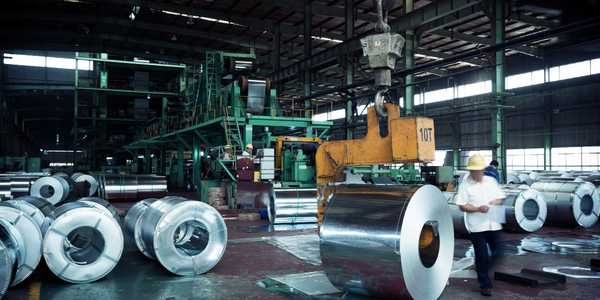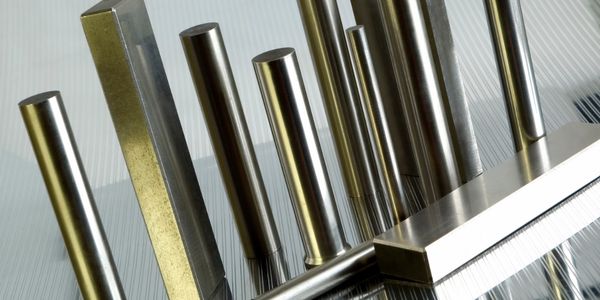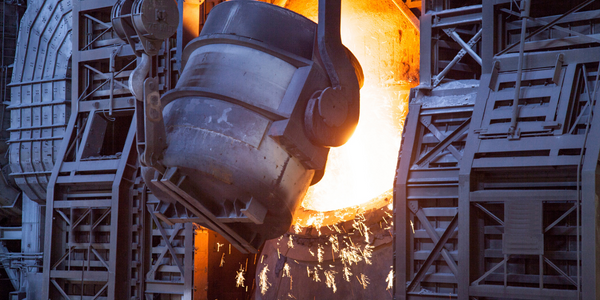Download PDF
Boston Centerless Drives Efficiency with Aptean Industrial Manufacturing ERP
Technology Category
- Functional Applications - Enterprise Resource Planning Systems (ERP)
Applicable Industries
- Metals
Applicable Functions
- Discrete Manufacturing
- Sales & Marketing
Use Cases
- Manufacturing System Automation
- Inventory Management
Services
- System Integration
The Challenge
Boston Centerless, a leader in supplying precision ground bar materials and grinding services, was facing several challenges with its existing software. The software was technologically outdated and lacked the analytical features required in the modern manufacturing environment. Furthermore, the support for the software was minimal. The company also had to manually prepare complex specification documents, which was a labor-intensive process. The lead time for processing orders was another challenge that the company was facing.
About The Customer
Boston Centerless is an industry leader in supplying precision ground bar materials and grinding services, specializing in extremely close tolerances. The company's AccuRod Division provides ground bars and rods cut to length for close tolerance machining applications, grinding a wide variety of materials such as stainless steel, carbon steel and alloys, titanium, tool steel, plastics and exotics. The GrindAll Division offers a range of grinding services for customers furnishing their own material or components. The PinGage Division manufactures a line of ultra-precise gages to validate precision measurements with absolute accuracy.
The Solution
Boston Centerless implemented the Aptean Industrial Manufacturing ERP to overcome its challenges. The ERP system was supported directly by Aptean, ensuring a closer relationship and faster resolution of issues. The ERP system enabled the company to automate many of its business processes, establish uniform best practices throughout the organization, and provide a real-time source of information that leads to more informed decisions. The company was able to fast track going live with the ERP system by incorporating the use of the Advanced Configurator module as a tool for developing customer quotes and sales orders with a higher level of accuracy. The system was also enhanced to match the unique way the company reviews costing to generate competitively priced orders accurately.
Operational Impact
Quantitative Benefit
Related Case Studies.

Case Study
Goldcorp: Internet of Things Enables the Mine of the Future
Goldcorp is committed to responsible mining practices and maintaining maximum safety for its workers. At the same time, the firm is constantly exploring ways to improve the efficiency of its operations, extend the life of its assets, and control costs. Goldcorp needed technology that can maximize production efficiency by tracking all mining operations, keep employees safe with remote operations and monitoring of hazardous work areas and control production costs through better asset and site management.

Case Study
KSP Steel Decentralized Control Room
While on-site in Pavlodar, Kazakhstan, the DAQRI team of Business Development and Solutions Architecture personnel worked closely with KSP Steel’s production leadership to understand the steel production process, operational challenges, and worker pain points.

Case Study
Bluescope Steel on Path to Digitally Transform Operations and IT
Increasing competition and fluctuations in the construction market prompted BlueScope Steel to look toward digital transformation of its four businesses, including modern core applications and IT infrastructure. BlueScope needed to modernize its infrastructure and adopt new technologies to improve operations and supply chain efficiency while maintaining and updating an aging application portfolio.

Case Study
RobotStudio Case Study: Benteler Automobiltechnik
Benteler has a small pipe business area for which they produce fuel lines and coolant lines made of aluminum for Porsche and other car manufacturers. One of the problems in production was that when Benteler added new products, production had too much downtime.

Case Study
Continuous Casting Machines in a Steel Factory
With a very broad range of applications, steel is an important material and has been developed into the most extensive alloy in the engineering world. Since delivering high quality is absolutely crucial for steel plants, ensuring maximum productivity and the best quality production are the keys to competitiveness in the steel industry. Additionally, working conditions in steel factories are not suitable for workers to stay in for long periods of time, so manufactures usually adopt various machines to complete the steel production processes. However, the precision of these machines is often overestimated and the lack of flexibility also makes supervisors unable to adjust operating procedures. A renowned steel factory in Asia planned to improve its Distributed Control System (DCS) of furnaces as well as addressing the problem of insufficient accuracy. However, most well-known international equipment suppliers can not provide a satisfactory solution and local maintenance because the project needed new technologies to more accurately control equipment operations. By implementing Advantech’s automated monitoring and control solution, steel factories can not only improve the manufacturing processes but can also allow users to add additional functions to the existing system so as to make sure the operation runs at high efficiency.

Case Study
Automated Predicitive Analytics For Steel/Metals Industry
Asset to be monitored: Wire Compactor that produces Steel RebarCustomer Faced The Following Challenges:Dependent upon machine uptime.Pressure cylinders within the compactor fail to control compression and speed causing problems in binding the coil.Equipment failure occurs in the final stage of production causing the entire line to stop, can you say bottleneck?Critical asset unequipped with sensors to produce data.




